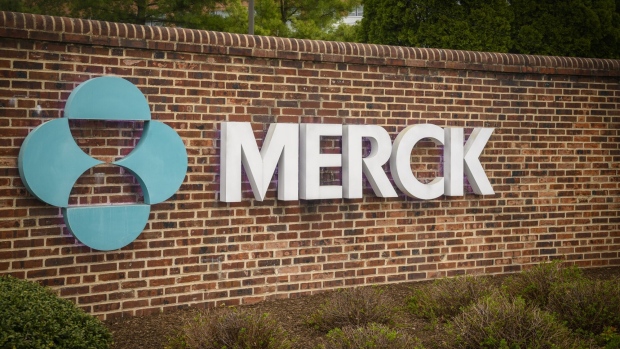Jan 8, 2024
Merck Is in Advanced Talks to Buy Cancer Drugmaker Harpoon Therapeutics
, Bloomberg News

(Bloomberg) -- Merck & Co. has agreed to acquire cancer drugmaker Harpoon Therapeutics Inc. for $680 million as it seeks to solidify its leadership position in the profitable oncology space.
The drugmaker will pay $23 a share for South San Francisco-based Harpoon, it said in a statement on Monday that confirmed an earlier report by Bloomberg News. Merck is offering more than double Harpoon’s last closing share price on Friday.
Harpoon, whose stock gained 41% in the past year, rose 112% in New York, a record gain. Merck shares rose 0.1%.
Merck is looking for new sources of growth as its top-selling medicine, the cancer immunotherapy Keytruda, is likely to face pricing pressure at the end of this decade. Keytruda generated $20.9 billion in 2022, making it one of the best-selling drugs in the world.
On Monday, the drugmaker raised its long-term sales outlook for its pipeline of cancer drugs in the wake of recent deals. Merck now sees more than $20 billion in annual sales from a suite of experimental cancer drugs by the mid-2030s, doubling its previous expectation of more than $10 billion.
Early Opportunities
Deal activity in the pharma world has gotten more competitive and prices are starting to rise, Merck Chief Executive Officer Rob Davis said in an interview, but the company’s scientists can spot good opportunities early, as in the case of Harpoon.
Deals worth up to $15 billion tend “to be a sweet spot, a focal point for us,” Davis said. While the company is open to larger purchases, he isn’t interested in a massive, transformative merger.
Harpoon is developing drugs that harness the body’s immune system to fight cancer, including a type of lung tumor and multiple myeloma. Its technology involves T-cell engagers, drugs that aim to use a patient’s own immune system to kill tumor cells. The company’s lead candidate targets a molecule called delta-like ligand 3 that’s found at high levels in small cell lung cancer and neuroendocrine tumors.
The drug is currently in an early-stage trial as a single agent for patients with certain advanced cancers and is being studied in combination with an existing immunotherapy for small cell lung cancer.
The small cell variety “is a really important place within lung cancer that we haven’t touched,” said Dean Li, president of Merck Research Laboratories, in an interview.
Expanding Portfolio
“Given the investor interest we have seen with other T-cell engager assets like Amgen’s tarlatamab, we view this takeout by Merck as a good value pick up,” Evan David Seigerman, an analyst at BMO Capital Markets, said in a note to clients. “While data for Harpoon is early, it is promising and gives Merck the opportunity to expand its pipeline into a promising target.”
Merck has been actively building its new product portfolio with outside drug candidates. In October, it agreed to buy the rights to sell Daiichi Sankyo Co.’s three experimental cancer drugs in a deal that involved $4 billion upfront and as much as $22 billion including potential future payments. In April, Merck announced a $10.8 billion deal for Prometheus, a maker of autoimmune drugs.
The deal for Harpoon is expected to close in the first half of 2024, according to Monday’s statement. Evercore Inc. is financial adviser to Merck, while Centerview Partners is advising Harpoon.
--With assistance from Nacha Cattan, Lisa Pham and Riley Griffin.
(Updates shares in third paragraph, adds sales forecast in fifth.)
©2024 Bloomberg L.P.


